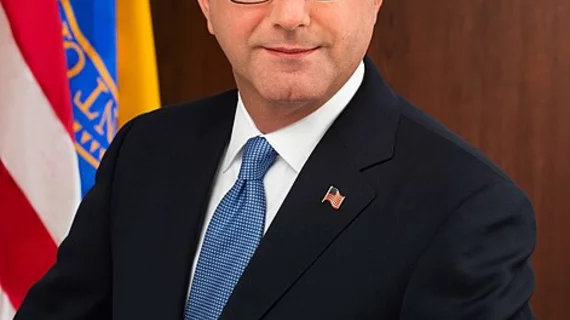HHS secretary supports more risk for ACOs
Health and Human Services Secretary Alex Azar said pushing ACOs to take on downside risk sooner is worth it even if some organizations choose to leave the voluntary Medicare Shared Savings Program as a result.
“If this ends up meaning somewhat fewer ACOs, so be it,” Azar said in a speech with the American Heart Association in Washington, D.C., on Sept. 7.
CMS recently proposed changing the shared savings program to push ACOs into taking on downside financial risk after just two years. Currently, the vast majority of the 561 ACOs participating in the shared savings program have one-sided, upside risk only, meaning they share in significant savings but do not have any financial risk themselves. In 2017, ACOs saved Medicare $314 million, though savings in years past have been mixed.
Forcing ACOs to take on downside risk as well would require them to pay back losses for overspending to Medicare. The proposal could cause an exodus of ACOs from the program, according to CMS’s estimates.
For HHS, that loss of some ACOs doesn’t appear to be an impediment to changing the rules.
“Without real accountability, we’re just offering bonuses on top of payments that may be too high already,” Azar said. “That’s why we have now proposed to simplify the ACO system into two tracks, requiring them to take on risk sooner.”
HHS is betting that adding downside financial incentives will improve the shared savings program.
“This should be no surprise: Incentives work. People respond to bonuses, but they really respond to losses,” Azar said.
Beyond ACOs, Azar also expressed that the Center for Medicare & Medicaid Innovation could implement other mandatory value-based care models in the future, something his predecessor, Tom Price, didn't support.
“Requiring participation can be necessary to determine whether a model really works, and it may be necessary to meet what we see as an urgent need for reform,” Azar said of mandatory models.

